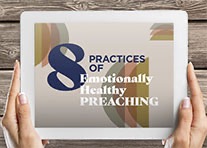Silencing the Seductive Voice of Your False Self
One of the most destructive temptations leaders face is living and leading from the veneer of a “false self”. In other words, we project an image of how we’d like to be perceived, rather than living from truth. How would you know if this is you? Here are a few symptoms… 7 Symptoms of the False Self: (continuum from mild to severe) I am reluctant to admit my weaknesses and flaws to others. I look for the approval of others more than I should. I am highly “offendable” and defensive when people criticize me. I say “yes” when I would rather say “no”. I have difficulty speaking up when I disagree or prefer something different. My fears often cause me to play it safe “just in case.” My body is more often in a state of tension and stress – rather than relaxed. Do any of these sound familiar? In today’s podcast, I share a sermon from. Read more.





